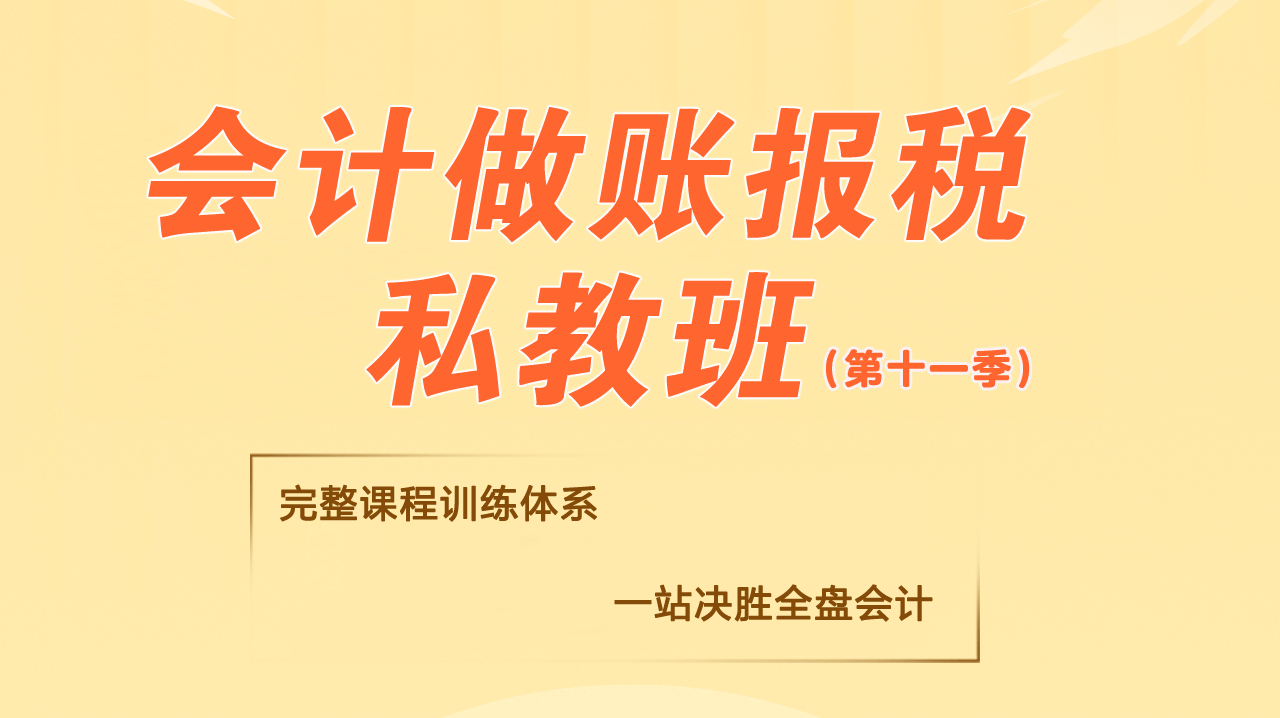中国山寨走进新时代(双语)
In China's “fake world,” consumers can shop for furniture at an imitation IKEA store, eat a six-inch sandwich at an outlet strikingly similar to Subway, and then grab dessert at “Dairy Fairy”─ where they might knock back an Oreo-flavored “Ice Storm” whose, thick, creamy texture takes unabashed inspiration from the famous Dairy Queen “Blizzard.”
在中国的“山寨世界”里,消费者可以在宜家家居“克隆店”里买家具,在极似赛百味(Subway)的店里吃六英寸的三明治,然后在冰雪精灵(Dairy Fairy)吃上些甜点,该店有一款名为“冰雪风暴”( Ice Storm)的奥利奥口味冰激凌,其浓厚滑腻的质地毫不掩饰地借鉴了冰雪皇后(Dairy Queen)大名鼎鼎的“暴风雪”(Blizzard)。
Welcome to the modern era of copying in China, in which sophisticated proprietors of knockoff stores and chains are targeting increasingly sophisticated Chinese consumers with store experiences and customer service extremely similar to the real thing, down to the helpful store maps, coupons, shopping bags and employee uniforms.
Bloomberg News昆明一家山寨苹果店的Logo最近已被遮盖。欢迎来到中国的山寨新时代,在这里,经验老道的山寨商店和连锁店店主们正以极似正品店的店内体验与客户服务面向越来越精明的中国消费者,实用的店内地图、优惠券、购物袋以及员工制服都模仿地天衣无缝。
The imitation retailers and restaurants go beyond the simple fakes of consumer goods that have long been abundant in China. Indeed, in some cases, they aren't even selling fake goods: the phenomenon gained global attention last month when a foreign blogger in the southwestern city of Kunming posted photos of a fake Apple Store selling real iPads and iPhones in a setting remarkably similar to Apple Inc.'s trademark retail outlets, and identifying itself as an Apple Store without the U.S. company's permission.
山寨零售店和餐厅远远超越了对消费品的简单仿制,中国一直盛产这些冒牌货。的确,有时候它们甚至都不是在卖假货:上个月,这种现象吸引了全球关注,昆明一位外国博客作者上传了昆明一家山寨苹果店的照片,这家店的设计与氛围与真的苹果授权零售店极其相似,销售iPad和iPhone正品,并在未获得苹果公司授权的情况下将自己视为苹果店。
Imitation retailers and restaurants aren't new in China, but analysts and executives say they have proliferated in recent years. The trend reflects growing awareness of the importance of things like design and customer experience among entrepreneurs in China, where people long ago perfected the art of making imitation goods but where companies have been less successful building their own consumer brands, said Wei Xiaopo, an analyst at CLSA Asia-Pacific Markets.
山寨零售店和餐厅在中国并非新事物,但分析师和公司高管说这些山寨店近几年数量激增。里昂证券亚太区市场(CLSA Asia-Pacific Markets)分析师魏晓坡说,这种趋势表明,中国创业者正日益意识到设计和客户体验等方面的重要性,很久以前中国人比较喜欢生产仿品,但企业一直没能成功的创立自己的消费品牌。
“Chinese companies know that service and experience have become among the most critical parts of branding for businesses that operate in China,” said Mr. Wei.
魏晓坡说,中国企业明白,对于在中国经营的企业,服务和体验已经成为品牌化最重要的两个元素。
While China is hardly the only country to have problems with commercial fakery, what happens here now matters enormously for multinational companies, because China is the world's most important growth market for consumer goods. Retail spending is expected to reach 27.4 trillion yuan ($4.3 trillion) by 2015, up by more than two thirds from the level last year, according to the Chinese Academy of Social Sciences, a government think tank.
虽然中国不大可能是唯一一个有商业造假问题的国家,但这里现在所发生的事对跨国公司来说利害攸关,因为中国是世界最重要的消费品增长市场。据政府智库中国社会科学院统计,中国社会消费品零售总额将在2015年达到27.4万亿元,较去年增长三分之二以上。
China's government has acknowledged problems with piracy, and has taken measures to address it that some foreign executives and experts say are starting to make headway. After the fake Apple Store was highlighted last month, Kunming officials initiated a sweeping inspection of electronic stores in the city. It's unclear whether they have taken any action against the Apple store, whose staffers now refuse to answer queries over the phone.
小测验:原版还是山寨?以下商铺,哪个是原版?哪个是山寨?文章的最后会给你答案。AGetty ImagesBBloomberg NewsCBloomberg NewsDReuterEMelissa Powers for The Wall Street JournalF中国政府已经承认存在盗版问题,并已经采取措施进行解决,一些外籍高管和专家说这些措施开始缓慢取得进展。上个月山寨苹果店曝光后,昆明政府对全市范围内的电子产品进行了检查。不清楚他们是否针对该山寨苹果店采取了行动,该店员工目前拒绝接受电话采访。
The fake stores present new complications for global companies that have long struggled to protect their brands in China. Some executives say that fake stores can help build brand awareness. And in cases of unauthorized resellers like the Apple store in Kunming, the foreign company is still benefiting from sales of its own products.
对长期努力在中国维护自己品牌的全球性公司来说,这些山寨店给他们带来了新的困难。一些高管说,山寨店可有助于建立品牌意识。即便在像昆明山寨店那样的个案中,苹果公司依然在从自己产品的销售中获利。
Alexander Moody-Stuart, managing director at sandwich chain Subway, said the number of imitators that come to franchising fairs in China increases every year. He said there are Subway copiers that use similar logos, offer sandwiches in six-inch and 12-inch formats as Subway does (China generally uses the metric system), and even accept coupons from Subway when consumers confuse the two stores.
三明治连锁店赛百味董事总经理穆迪-司徒华(Alexander Moody-Stuart)说,在中国开业的特许经营山寨店数量每年都在增加。他说,有的山寨店使用和赛百味类似的品牌标识,和赛百味一样供应六英寸和12英寸的三明治,甚至在顾客分不清两家店时接受赛百味的优惠券。
For Subway, which is trying to build awareness to a type of food that isn't always eaten in China, 'the mimicking isn't exactly a bad thing,' Mr. Moody-Stuart said.
司徒华说,对赛百味来说,这种仿冒并不见得是坏事。赛百味正试图提高人们对在中国并不常吃的食品的认知度。
But the imitation stores also limit the companies' ability to control the experience that consumers have with their brands. Copycat companies run the risk of tarnishing a consumer's association with an already established brand at a time when Chinese consumers are increasingly brand-conscious. Apple, for example, wasn't able to oversee the service or hire the employees at fake stores like the one in Kunming the way it does painstakingly at its own outlets. Walt Disney Co. has similar difficulties: a number of 'Disney Stores' are open in China, even though the U.S. company hasn't yet launched its trademarked chain of stand-alone retail shops in the country─although it does license its products for sale in the Chinese market.
但山寨店同时也限制了各公司控制消费者对公司品牌体验的能力。在中国消费者品牌意识日渐增强之时,山寨公司可能会损坏消费者与公认品牌之间的关系。例如,苹果无法像对正品零售店那样煞费苦心地对类似昆明苹果店的山寨店进行服务监督,也无法尽心尽力地为那些店招聘员工。美国的华特•迪士尼公司(Walt Disney Co.)也有类似困难:虽然公司尚未在中国开设在独立零售店注册连锁,但已经有好几家“迪士尼商店”在中国开业,尽管公司确实已经授权产品在中国市场销售。
Spokeswomen for Apple and Disney in China declined to comment.
苹果和迪士尼驻中国发言人拒绝置评。
Copycat stores range from small regional operations, such as 11 Furniture, which runs two stores, to larger Dairy Fairy-type national franchises. To some degree, the copycat stores illustrate that there's demand that's not being met, because some foreign companies haven't expanded into huge swaths of China's interior, said Torsten Stocker a Hong Kong analyst for Cambridge, Mass., consulting firm Monitor Group.
这些山寨店铺的规模各有不同,有的是区域性小规模运营,比如十一家具(11 Furniture)就只经营两家店铺;有的像冰雪精灵则是全国性连锁经营。总部位于美国马萨诸塞州剑桥市的咨询公司摩立特集团(Monitor Group)驻香港的分析师施托克尔(Torsten Stocker)说,在某种程度上,山寨店的存在说明市场有无法被满足的需求,因为一些外国企业还未扩张到中国内陆的广大地区。
Apple, for example, has only four of its stores in China─in Beijing and Shanghai─though it licenses resellers elsewhere in the country. Swedish furniture giant IKEA Group hasn't yet expanded into China's far western cities like Kunming, where a Chinese company called 11 Furniture is mirroring IKEA's store marketing strategy─everything from its blue-and-yellow colors and in-store room displays to special golf pencils and crinkling plastic bags.
以苹果为例,虽然苹果公司准许全国其它地区的经销商销售其产品,但该公司在中国只有位于北京和上海的四家门店。瑞典家具巨头宜家集团尚未扩张到类似昆明这样中国偏远的西部城市。在昆明,一家名叫十一家具的中国企业正在模仿宜家的店铺营销策略:从蓝黄相间的色调,到店内房间的陈设,再到特殊的铅笔和皱纹塑料袋,十一家具在模仿宜家的所有营销策略。
Just like IKEA does, 11 Furniture uses blue signs and yellow arrows on the floor to direct consumers through mock living rooms, where sofas sit opposite flat screen TVs and tables that look like they should have names like Folkvik and Liatorp (instead of Shuwei Kela Chaji).
和宜家一样,十一家具也在地板上使用蓝色标志和黄色箭头引导顾客参观客厅样板间。在样板间里,沙发正对平板电视摆放,一旁摆着的桌子看上去更像宜家的电视储物柜(Folkvik)和系列桌椅(Liatorp),但它的真正名字却叫舒唯科拉茶几。
A spokeswoman in China for IKEA, which has nine stores in China and plans to open 12 more, said of 11 Furniture that “IKEA is not aware of copyright infringement.”
宜家中国的一位发言人谈到十一家具时说,宜家并没有意识到自己的版权遭到了侵犯。宜家在中国已有九家店铺,并计划再开12家。
Not everything is knockoff in imitation outlets. At Dairy Fairy, a national franchise chain that opened in 2008, ice cream, including the Blizzard-like “Ice Storm,” is served upside-down, just like at Dairy Queen, which has 360 stores in China. Cups are marked with “DF” in red and blue, resembling the colors Dairy Queen uses and its “DQ” nickname. Dairy Fairy employees are donned in blue uniforms with red aprons─nearly a mirror image of Dairy Queen employees. But at a Dairy Fairy in Beijing on Tuesday, the menu also included items that one wouldn't find at a DQ, such as spicy-pepper-flavored ice cream.
但山寨店里也并非所有东西都是翻版。冰雪精灵是2008年开业的全国连锁冰激凌店,在其店内,包括和冰雪皇后的“暴风雪”(Blizzard)类似的“冰雪风暴”在内的冰激凌都可以做到和冰雪皇后产品一样的“倒杯不洒”。冰雪皇后在中国开设了360家店面。冰雪精灵的冰激凌杯都印有红蓝两种颜色的“DF”字样,这和冰雪皇后及其缩写DQ所使用的颜色类似。冰雪精灵的服务员身着蓝色制服,带红色围裙,这几乎就是冰雪皇后服务员的翻版。但记者周二在北京冰雪精灵的一家店内的菜单上发现了一些在冰雪皇后无法找到的产品,比如辛辣口味的冰激凌。
Dairy Fairy declined to comment and didn't offer details on the number of stores it operates in China. Dairy Queen vice president of international marketing Justin Holtkamp said the company isn't aware of Dairy Fairy, but that it has other imitators, who just use the company's name or call it “Dairy & Queen.” Dairy Queen has shut down two stores that infringed its trademark within the last year, he said.
冰雪精灵拒绝置评,也不透露其在中国内地运营的店铺数量的详情。冰雪皇后主管国际营销的副总裁霍特坎普(Justin Holtkamp)说,该公司并不知道冰雪精灵,但他说公司有其它模仿者。这些效仿者有的直接使用公司的名称,有的则把店名改为“Dairy & Queen”。霍特坎普说,去年冰雪皇后关闭了两家侵犯其商标的店铺。
Some proprietors say their company's similarity to known brands is a coincidence. At Jambo Juice in Beijing, where smoothies are made on-the-spot so consumers can add so-called energy boosters and opt for antioxidants, the green signs and tropical colors are familiar to anyone who has ever patronized U.S.-based chain Jamba Juice, which doesn't have outlets in China.
但有些企业说,其公司名称和知名品牌相似纯属巧合。北京的浆宝超活力代餐吧(Jambo Juice)提供现场制作的冰沙,顾客可以选择添加所谓的“能量增强剂”,也可以选择添加抗氧化剂。对于任何一个曾光顾过美国冰沙连锁店Jamba Juice的人都会觉得浆宝餐吧的绿色标志和热带颜色非常眼熟,但Jamba Juice在中国并没有分店。
But Jambo's founder, Ye Jiabin, says he got the English name from an African language (it is a greeting in Swahili), and is now considering changing the name because it is too similar to the U.S. company. “We've just always put more emphasis on the Chinese name”─which is Jiang Bao─he said.
但浆宝餐吧的创始人叶家斌(音)说,餐吧的英文名源自非洲部落语言(在斯瓦希里语中,Jambo是问候语),但他说现在正考虑改名,因为这个名字和美国的Jamba Juice实在太像了。叶家斌还说我们总是更多地强调其中文名“浆宝”。
Still, the scale of some examples is startling. In Changzhou, Jiangsu Global Digital Cultural Theme Park Co. has opened a park called Global Animation Joyland, which bloggers have called attention to because it includes a section that appears to be based on Activision Blizzard Inc.'s World of Warcraft massive multiplayer online game.
尽管如此,一些山寨的规模还是令人震惊。在常州,江苏环球数字文化体验园有限公司(Jiangsu Global Digital Cultural Theme Park Co.)最近开设了一个名叫环球动漫嬉戏谷的主题乐园。这座乐园引起了很多博主的注意,因为乐园内有一个部分似乎是基于动视暴雪公司(Activision Blizzard Inc.)推出的大型多人网络游戏《魔兽世界》(World of Warcraft)建造的。
Activision Blizzard said it hasn't licensed the use of its intellectual property to Joyland or any other theme park, and is “actively looking into the situation.” The Chinese version of World of Warcraft, operated through a licensing agreement by Chinese Internet company Netease.com Inc., is one of the most popular online games in China. Netease didn't respond to requests for comment.
动视暴雪公司说,该公司并未将其知识产权的使用权授权给环球动漫嬉戏谷或其它任何一座主题乐园使用,并说公司正在积极调查此事。中文版《魔兽世界》是中国互联网公司网易(Netease.com Inc.)签署授权协议后进行运营的。这款游戏是中国最受欢迎的网游之一。网易没有回复记者的置评请求。
Joyland, a park that opened with blessings from local officials, also includes licensed sections devoted to other brands including “Mo'er Manor,” based on an online community for children by New York Stock Exchange-listed Taomee Holdings Ltd., and a store carrying official merchandise of Walt Disney Co.
环球动漫嬉戏谷是在当地官员的批准和支持下建成的,乐园内包括获得其它品牌授权的部分,其中包括“摩尔庄园”(Mo'er Manor)以及一个销售华特-迪士尼公司(Walt Disney Co.)官方商品的店铺。“摩尔庄园”是根据在纽约证券交易所(New York Stock Exchange)上市的上海淘米网络科技有限公司(Taomee Holdings Ltd.)推出的儿童网络社区建设的。



